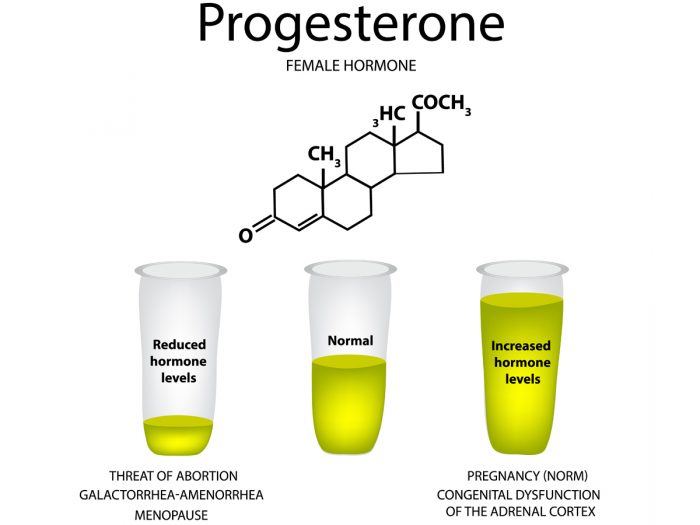If you are trying to get pregnant and are not able to do so, it could be because of low progesterone levels. Abnormally low level of progesterone in your body is a matter of great concern for women during their child-bearing years. This condition can also have other health implications, as it affects other organ systems as well. However, before you do anything, you should get yourself familiarized with this problem, its symptoms and causes. This guide will help you do just that. [1]
What is Low Progesterone?
Low progesterone means that your body doesn’t have enough of a key sex hormone that can affect a wide variety of reproductive and menstrual processes. Progesterone not only regulates the menstrual cycle but is also necessary to become and stay pregnant. Following ovulation, progesterone stimulates the thickening of the uterine lining, in preparation for implantation. If a fertilized egg does not attempt to implant, then the lining is shed, resulting in menstruation. If an egg is present, then this hormone is critical to maintaining a healthy pregnancy.

Progesterone plays a vital role in the menstrual cycle and in maintaining the early stages of pregnancy. Photo Credit: Shutterstock
Progesterone also works in close conjunction with estrogen in the body, so a drop in progesterone can lead to an unhealthy rise in estrogen. A recent study revealed that a successful and healthy pregnancy depends on an appropriate maternal immune response to the fetus. Progestogen supplementation should be used preferentially with the consultation of a doctor. Even in men, progesterone is produced in small amounts, because it is critical in the production of sperm. Low progesterone levels in men are not considered a serious concern, in most cases. [2]
Symptoms of Low Progesterone
If you are a woman with low progesterone but aren’t pregnant, you may experience the following:
- Anxiety
- Mood swings
- Migraines
- Irregular periods
- Low libido
- Hot flashes
Basically, these are signs that should indicate that your hormone levels are out of line, and should be addressed/adjusted. [3]
If you are pregnant and have low levels of progesterone, the symptoms will likely include the following:
- Stomach discomfort or pain
- Spotting or light bleeding
- Breast tenderness [4]
- Vaginal dryness
- Exhaustion
- Low blood sugar levels
In serious cases, low progesterone levels may indicate an ectopic pregnancy, which presents a variety of other risks and treatment requirements.
Causes of Low Progesterone
There are several possible causes for a low level of this sex hormone, including previous miscarriage, ovarian problems, menopause and excess stress, among others.
Miscarriage
Studies have found that women who have miscarried in the past are more likely to struggle with maintaining progesterone levels.
Ovary Problems
If you have any cysts or inflammatory conditions in your ovaries, your progesterone levels are more likely to fluctuate, making implantation more difficult. [5]
Menopause
As you go through menopause, your sex hormone production changes completely, and while you may not be trying to get pregnant at that age, it can affect other parts of your body, such as the brain and nervous system, as well as mood and sleep patterns.
Stress
Excess levels of cortisol in the body can counter the production of progesterone, so doing your best to relax and decrease anxiety is an excellent way to avoid low levels of this critical sex hormone. [6]
Xenohormones
Certain man-made products, such as herbicides, pesticides, and plastics are called xenohormones because they can have estrogen-like effects, which can disrupt your progesterone levels.
